Two days after the controversial Indo-Pak joint statement in Egypt, prime minister Yousaf Raza Gilani tonight blamed India for "interference" in Balochistan and "other areas".
Two days after the controversial Indo-Pak joint statement in Egypt, Pakistan's prime minister Yousaf Raza Gilani tonight blamed India for "interference" in Balochistan and "other areas" and said the document reflected Pakistan's concerns on this.
The joint statement signed by Gilani and prime minister Manmohan Singh "underlines our concerns over India's interference in Balochistan and other areas of Pakistan", the prime minister told his first press conference in Islamabad after his return from Sharm el-Sheikh in the Sinai peninsula.
At the outset, he showered praise on Manmohan Singh for agreeing to resume the dialogue, saying India's leader had shown "political sagacity" and "statesmanship" in realising that talks were the only way forward.
The statement, which has been attacked by opposition parties and commentators in India, in a brief reference to Balochistan said Gilani had "mentioned that Pakistan has some information on threats in Balochistan and other areas".
Referring to the document, Gilani said it provides for discussion on all outstanding issues with India. Asked when Pakistan will give proof to India about its "interference" in Balochistan, he said, "As and when talks take place, it will be handed over. Right now we are talking about talks."
During his long interaction with journalists, Gilani was congratulated by them for "showing courage" at the talks with Singh and getting Balochistan on to the table.
Asked about Singh's response when he raised the issue of Balochistan, Gilani evaded a direct reply, saying both India and Pakistan are "victims of terrorism" and a "joint effort" is required to fight it.
To a question, Gilani said Singh was "very clear" that he was ready to discuss all issues. "Just put the cards on the table, I am not scared," he quoted Singh as saying during their three-hour-long discussion.
He said there was a "trust deficit" in relations between India and Pakistan and "with more interactions, that will be taken care of".
When a journalist pointed out that a leader of Pakistan-occupied Kashmir (PoK) had criticised the omission of the Kashmir issue in the joint statement, Gilani said the reference to "all outstanding issues" includes Kashmir, which, he noted, is the "cornerstone" of the ruling Pakistan Peoples Party's policies.
He said the 'prime minister' of PoK had called him to congratulate him for what he had done on Jammu and Kashmir.
"We discussed in detailed the composite dialogue," Gilani said about his talks with Singh. "In prinicple, we both agreed that dialogue is the only way forward. The population of both the countries is 1.5 billion people and we can't make them suffer and hold them hostage to one issue."
Asked whether the US had helped in making India agree to resume the dialogue, Gilani said, "I have never requested America. It is our own effort, Pakistan's own efforts. Both leaders [Singh and Gilani] were convinced with the stand we took that will help both the countries to move forward."
Gilani was asked whether the filing of a charge sheet today against five suspects in the Mumbai attacks was a coincidence or a gesture to India. "We were already probing. A lot of evidence is being probed. It is just coincidence," he replied.
He said Pakistan has sought more information on the Mumbai attacks and Singh has agreed to send it. "When we get further information, certainly we will bring to justice [the perpetrators]," he said.
Gilani said Singh had expressed fear of another Mumbai-type attack and said if there was "credible and actionable information, it should be shared with our agencies and Pakistan will help."
The prime minister also contradicted president Asif Ali Zardari on his comment that Pakistan does not feel threatened by India. "Ask them who holds such a view," he said when asked if he shared Zardari's views. "We have not had very good relations with India. So we have to be little careful. There is lack of trust. When this ends, then we can say we are not threatened. It is too early to say that now."
![submenu-img]() Meet IIT-JEE topper with AIR 1, son of government school teachers, he went on to pursue...
Meet IIT-JEE topper with AIR 1, son of government school teachers, he went on to pursue...![submenu-img]() Salman Khan house firing case: One more Lawrence Bishnoi gang member arrested by Mumbai Police
Salman Khan house firing case: One more Lawrence Bishnoi gang member arrested by Mumbai Police ![submenu-img]() Mukesh Ambani to host Anant-Radhika's second pre-wedding function: Trip to start from Italy with 800 guests and end in..
Mukesh Ambani to host Anant-Radhika's second pre-wedding function: Trip to start from Italy with 800 guests and end in..![submenu-img]() Driver caught on camera running over female toll plaza staff on Delhi-Meerut expressway, watch video
Driver caught on camera running over female toll plaza staff on Delhi-Meerut expressway, watch video![submenu-img]() 'If you come and do something here...': EAM S Jaishankar on India's 'message' against terrorism
'If you come and do something here...': EAM S Jaishankar on India's 'message' against terrorism![submenu-img]() Meet IIT-JEE topper with AIR 1, son of government school teachers, he went on to pursue...
Meet IIT-JEE topper with AIR 1, son of government school teachers, he went on to pursue...![submenu-img]() TN 11th Result 2024: TNDGE Tamil Nadu HSE (+1) result declared, direct link here
TN 11th Result 2024: TNDGE Tamil Nadu HSE (+1) result declared, direct link here![submenu-img]() Meet doctor who cracked UPSC exam with AIR 9 but didn’t became IAS due to…
Meet doctor who cracked UPSC exam with AIR 9 but didn’t became IAS due to…![submenu-img]() TN 11th Result 2024 to be declared today; know how to check
TN 11th Result 2024 to be declared today; know how to check![submenu-img]() Meet man who worked as coolie, studied from railway's WiFi, then cracked UPSC exam to become IAS, secured AIR...
Meet man who worked as coolie, studied from railway's WiFi, then cracked UPSC exam to become IAS, secured AIR...![submenu-img]() DNA Verified: Is CAA an anti-Muslim law? Centre terms news report as 'misleading'
DNA Verified: Is CAA an anti-Muslim law? Centre terms news report as 'misleading'![submenu-img]() DNA Verified: Lok Sabha Elections 2024 to be held on April 19? Know truth behind viral message
DNA Verified: Lok Sabha Elections 2024 to be held on April 19? Know truth behind viral message![submenu-img]() DNA Verified: Modi govt giving students free laptops under 'One Student One Laptop' scheme? Know truth here
DNA Verified: Modi govt giving students free laptops under 'One Student One Laptop' scheme? Know truth here![submenu-img]() DNA Verified: Shah Rukh Khan denies reports of his role in release of India's naval officers from Qatar
DNA Verified: Shah Rukh Khan denies reports of his role in release of India's naval officers from Qatar![submenu-img]() DNA Verified: Is govt providing Rs 1.6 lakh benefit to girls under PM Ladli Laxmi Yojana? Know truth
DNA Verified: Is govt providing Rs 1.6 lakh benefit to girls under PM Ladli Laxmi Yojana? Know truth![submenu-img]() Remember Harsh Lunia? Just Mohabbat child star, here's how former actor looks now, his wife is Bollywood's popular...
Remember Harsh Lunia? Just Mohabbat child star, here's how former actor looks now, his wife is Bollywood's popular...![submenu-img]() Mother's Day 2024: Bollywood supermoms who balance motherhood, acting, and run multi-crore businesses
Mother's Day 2024: Bollywood supermoms who balance motherhood, acting, and run multi-crore businesses![submenu-img]() Rocky Aur Rani's Golu aka Anjali Anand shocks fans with drastic weight loss without gym, says fitness secret is...
Rocky Aur Rani's Golu aka Anjali Anand shocks fans with drastic weight loss without gym, says fitness secret is...![submenu-img]() In pics: Ram Charan gets mobbed by fans during his visit to Pithapuram for ‘indirect campaign’ for uncle Pawan Kalyan
In pics: Ram Charan gets mobbed by fans during his visit to Pithapuram for ‘indirect campaign’ for uncle Pawan Kalyan![submenu-img]() Streaming This Week: Yodha, Aavesham, Murder In Mahim, Undekhi season 3, latest OTT releases to binge-watch
Streaming This Week: Yodha, Aavesham, Murder In Mahim, Undekhi season 3, latest OTT releases to binge-watch![submenu-img]() Haryana Political Crisis: Will 3 independent MLAs support withdrawal impact the present Nayab Saini led-BJP government?
Haryana Political Crisis: Will 3 independent MLAs support withdrawal impact the present Nayab Saini led-BJP government?![submenu-img]() DNA Explainer: Why Harvey Weinstein's rape conviction was overturned, will beleaguered Hollywood mogul get out of jail?
DNA Explainer: Why Harvey Weinstein's rape conviction was overturned, will beleaguered Hollywood mogul get out of jail?![submenu-img]() What is inheritance tax?
What is inheritance tax?![submenu-img]() DNA Explainer: What is cloud seeding which is blamed for wreaking havoc in Dubai?
DNA Explainer: What is cloud seeding which is blamed for wreaking havoc in Dubai?![submenu-img]() DNA Explainer: What is Israel's Arrow-3 defence system used to intercept Iran's missile attack?
DNA Explainer: What is Israel's Arrow-3 defence system used to intercept Iran's missile attack?![submenu-img]() Salman Khan house firing case: One more Lawrence Bishnoi gang member arrested by Mumbai Police
Salman Khan house firing case: One more Lawrence Bishnoi gang member arrested by Mumbai Police ![submenu-img]() Meet actress, who got rejected for her looks, had no hit for 15 years; later beat Alia, Deepika, Katrina at box office
Meet actress, who got rejected for her looks, had no hit for 15 years; later beat Alia, Deepika, Katrina at box office![submenu-img]() Abdu Rozik breaks silence on his wedding announcement being called ‘publicity stunt’: ‘The whole world is…’
Abdu Rozik breaks silence on his wedding announcement being called ‘publicity stunt’: ‘The whole world is…’![submenu-img]() Meet actress who made debut with Salman Khan, had super flop career, then got TB, now lives in chawl, runs..
Meet actress who made debut with Salman Khan, had super flop career, then got TB, now lives in chawl, runs..![submenu-img]() Meet actress who worked with Naseeruddin Shah, sister of popular models, is now getting trolled on social media for..
Meet actress who worked with Naseeruddin Shah, sister of popular models, is now getting trolled on social media for..![submenu-img]() Driver caught on camera running over female toll plaza staff on Delhi-Meerut expressway, watch video
Driver caught on camera running over female toll plaza staff on Delhi-Meerut expressway, watch video![submenu-img]() Delhi man takes 200 flights in 110 days, steals lakhs worth of jewelry from passengers
Delhi man takes 200 flights in 110 days, steals lakhs worth of jewelry from passengers![submenu-img]() Viral video: Man makes paratha with 'diesel', internet reacts
Viral video: Man makes paratha with 'diesel', internet reacts![submenu-img]() Viral video of 'black jalebi' leaves internet in shock; netizens say 'hey bhagwan...'
Viral video of 'black jalebi' leaves internet in shock; netizens say 'hey bhagwan...'![submenu-img]() Real-life Bambi and Thumper? Adorable deer and rabbit video melts hearts online
Real-life Bambi and Thumper? Adorable deer and rabbit video melts hearts online

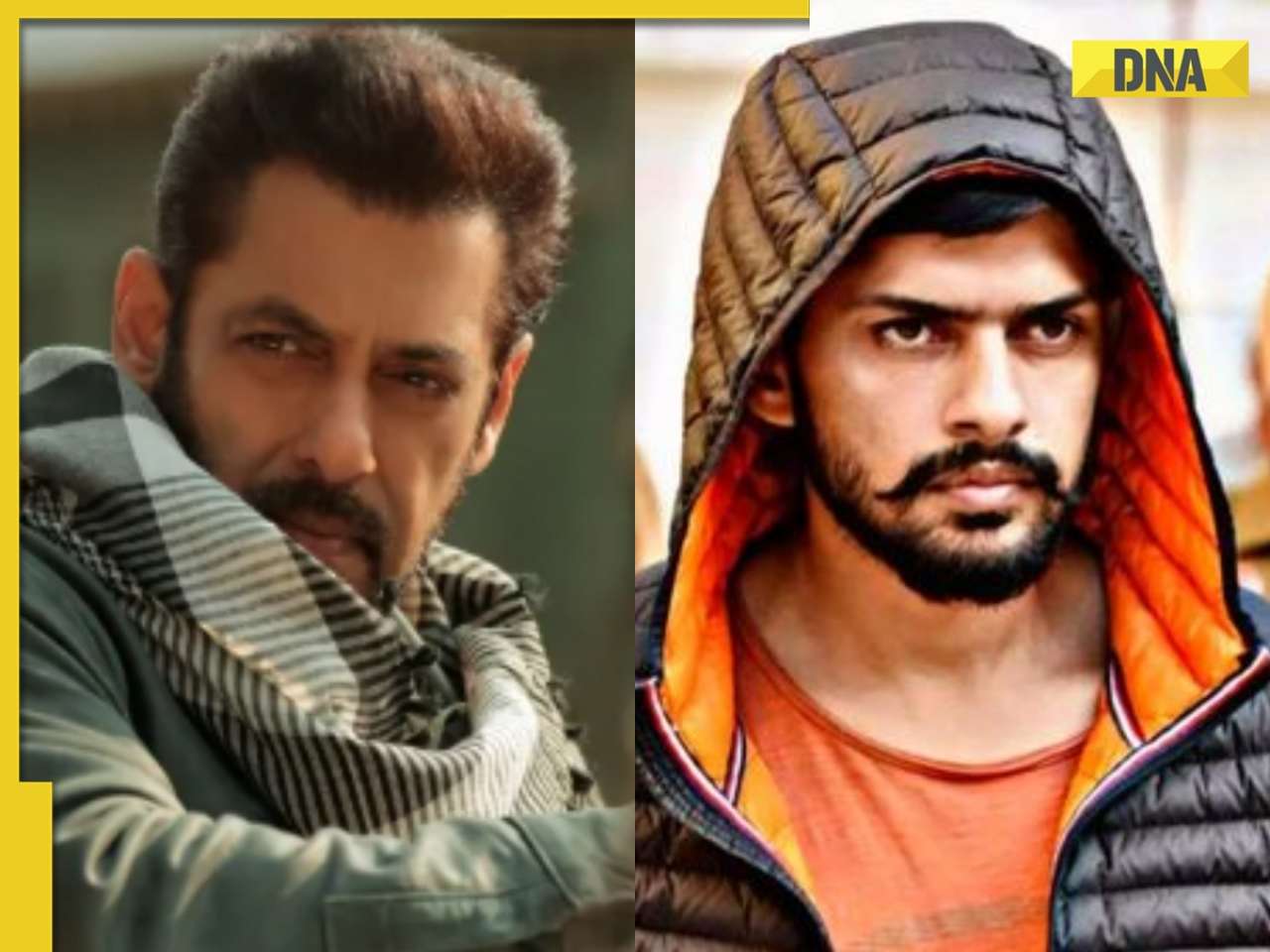


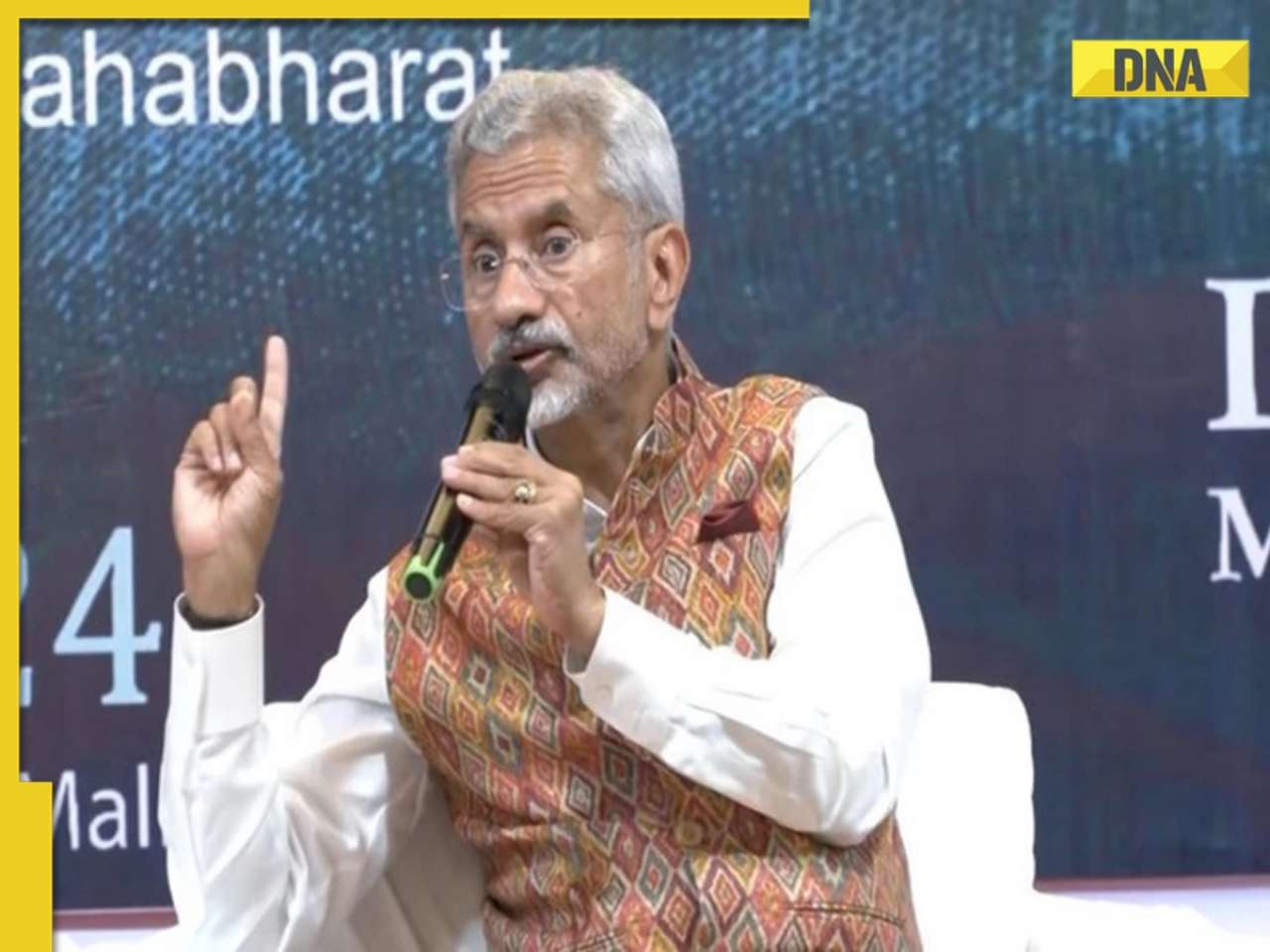




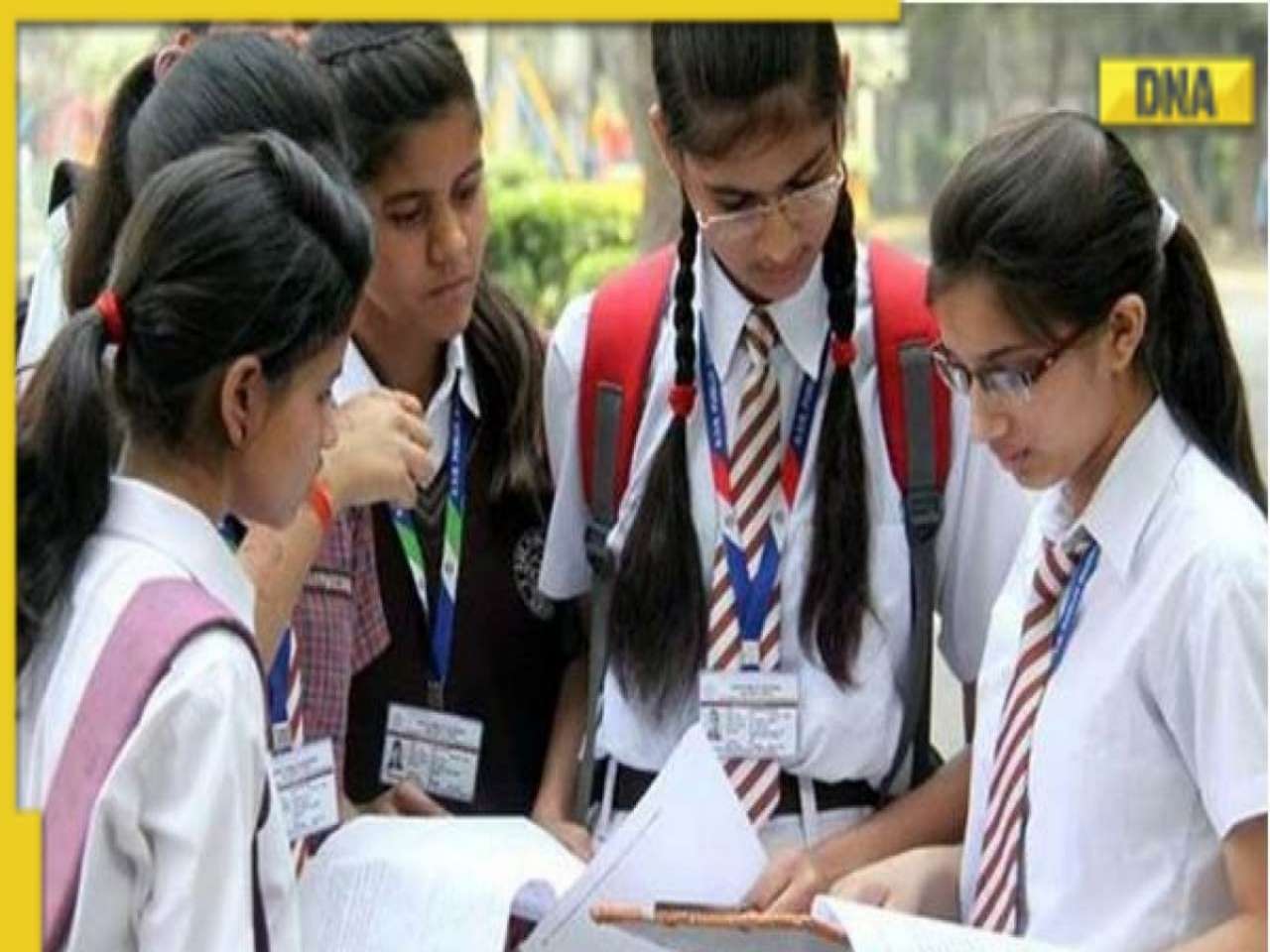

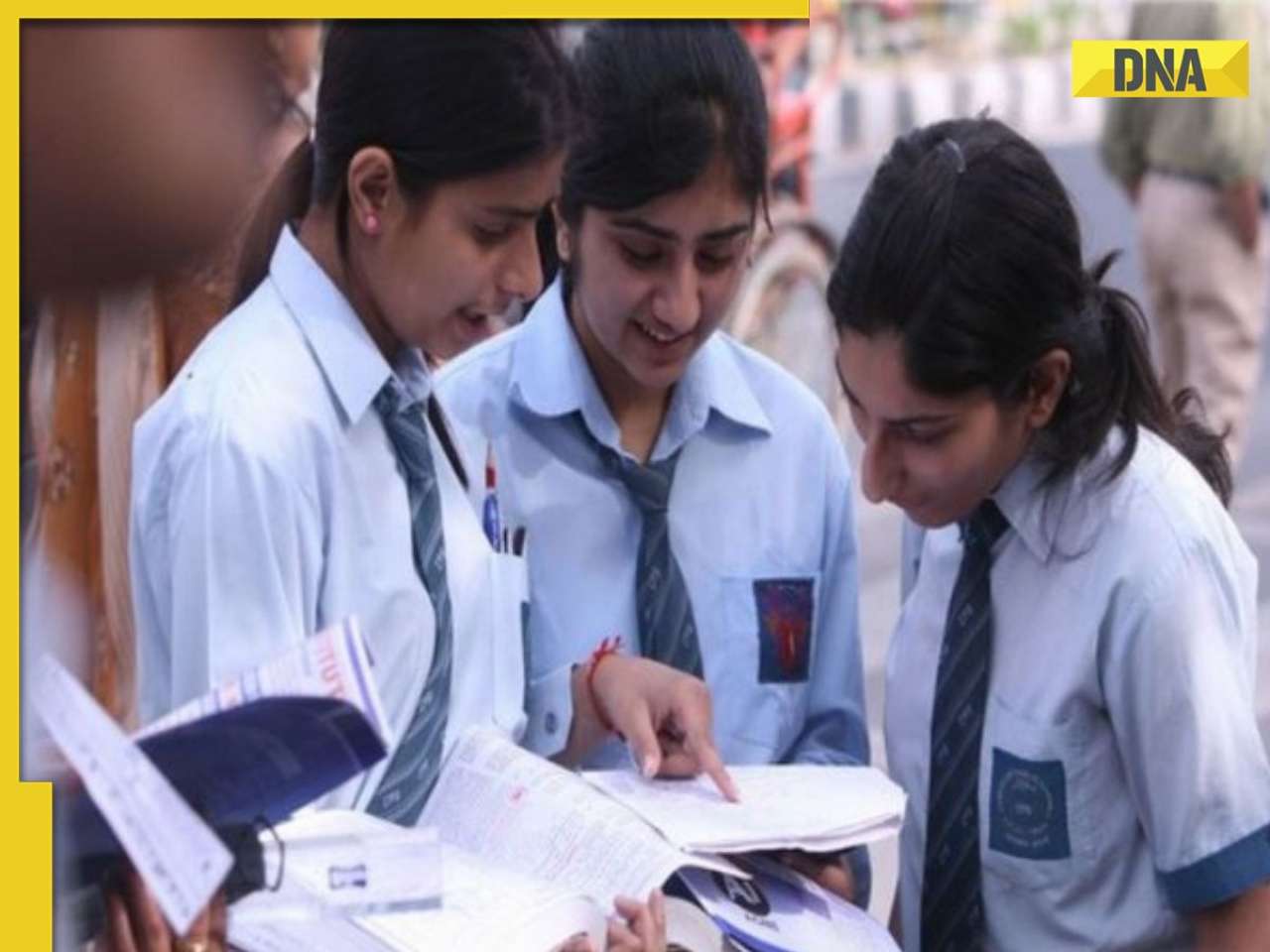
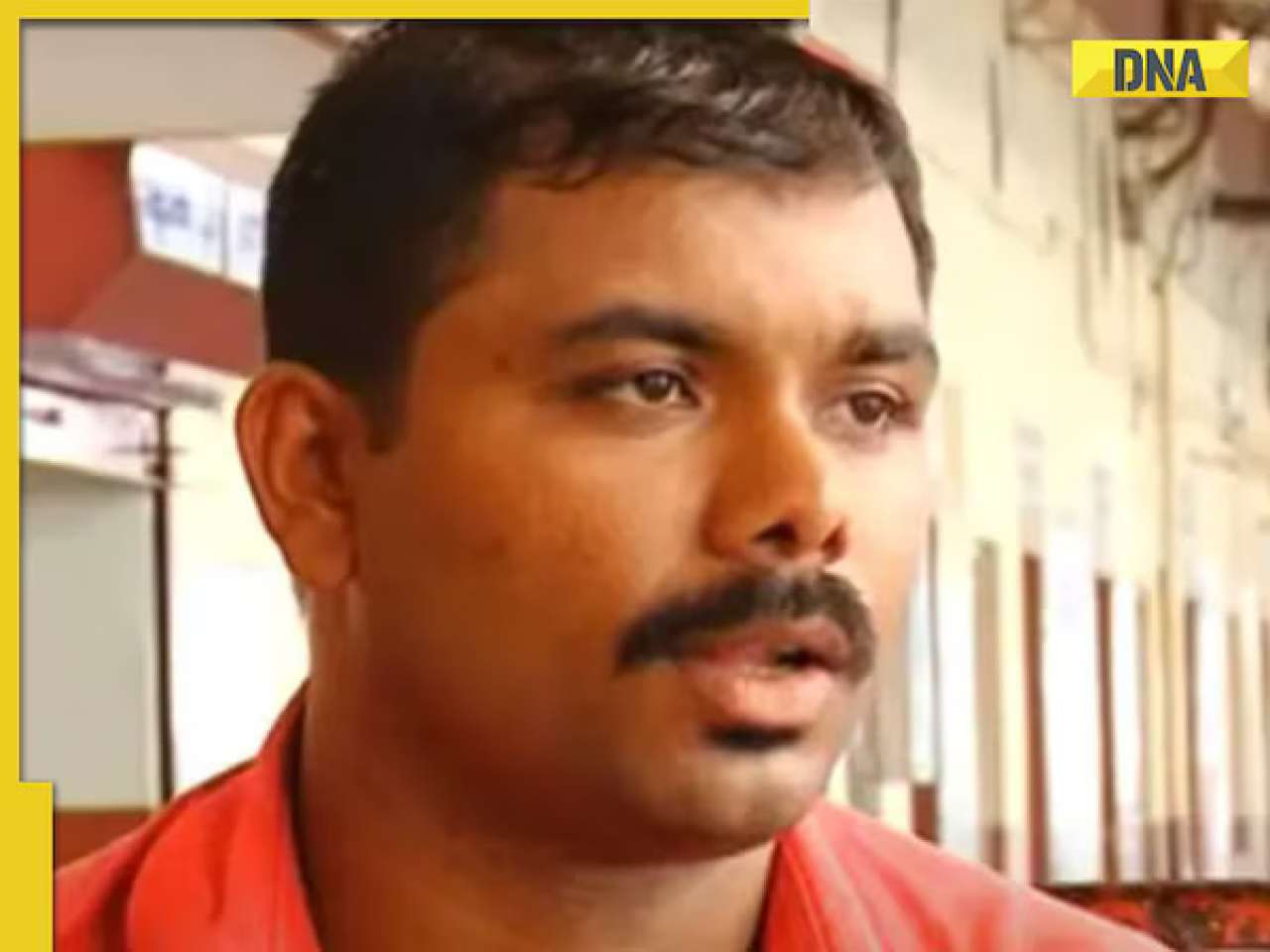





















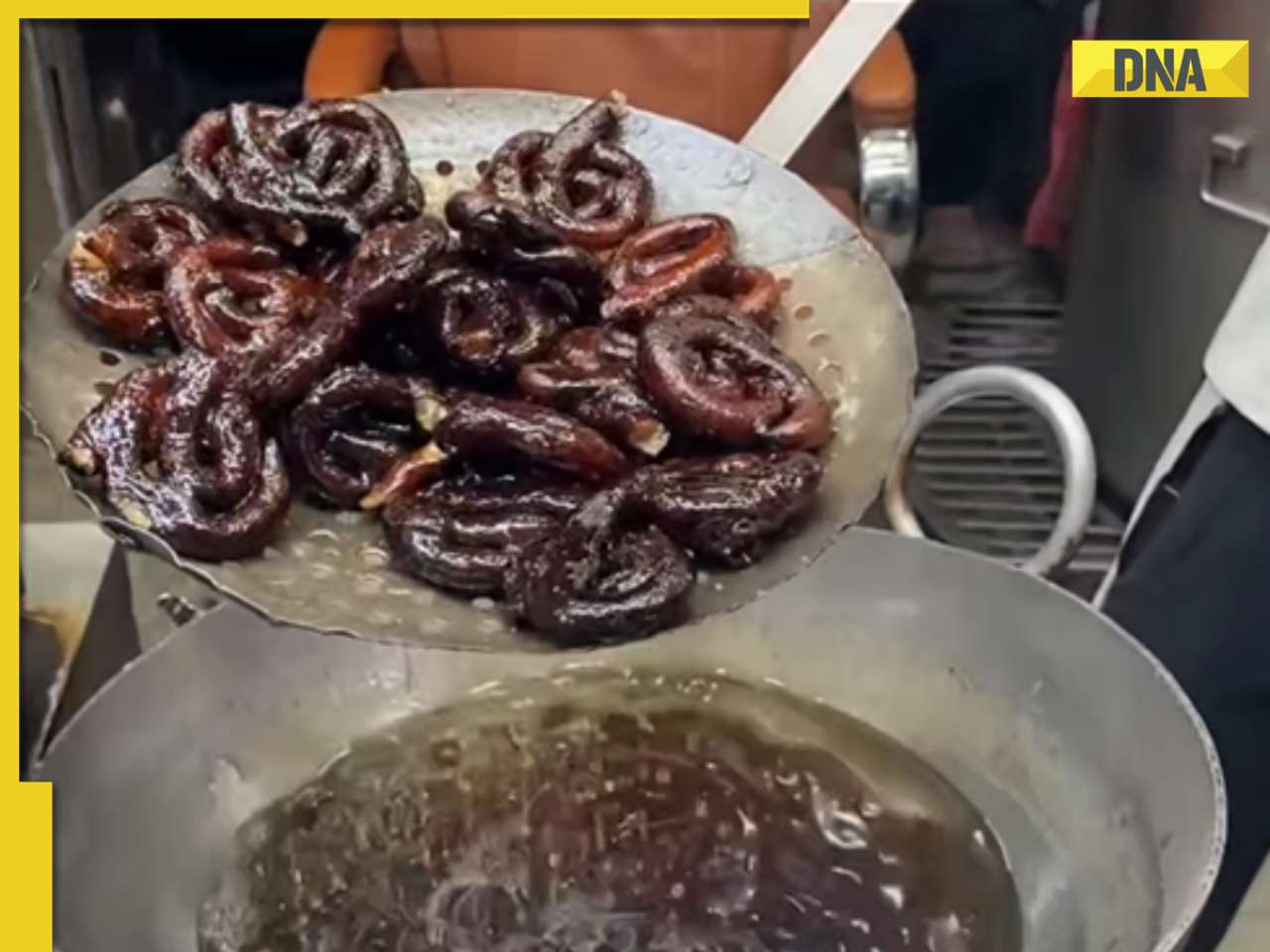
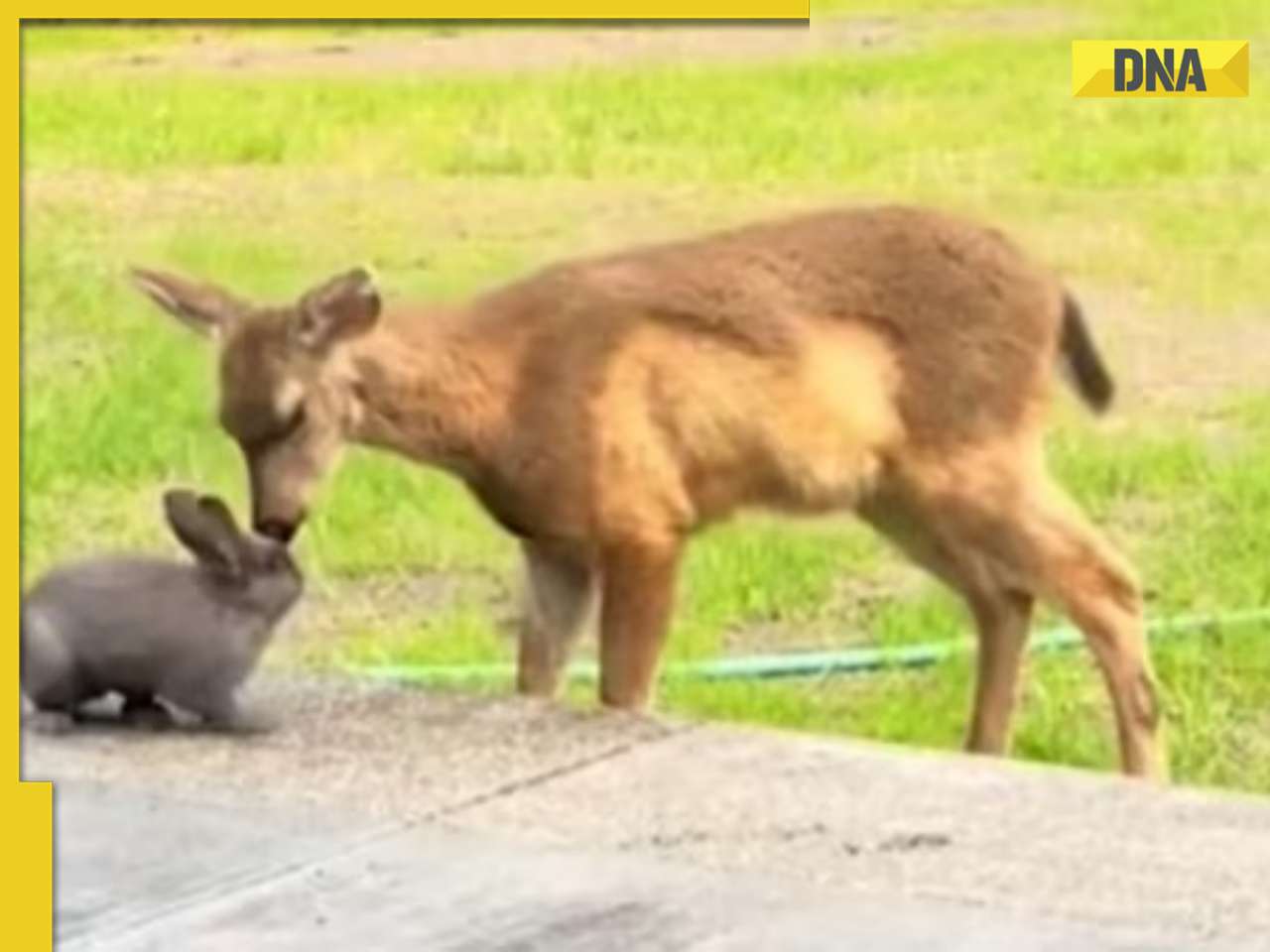



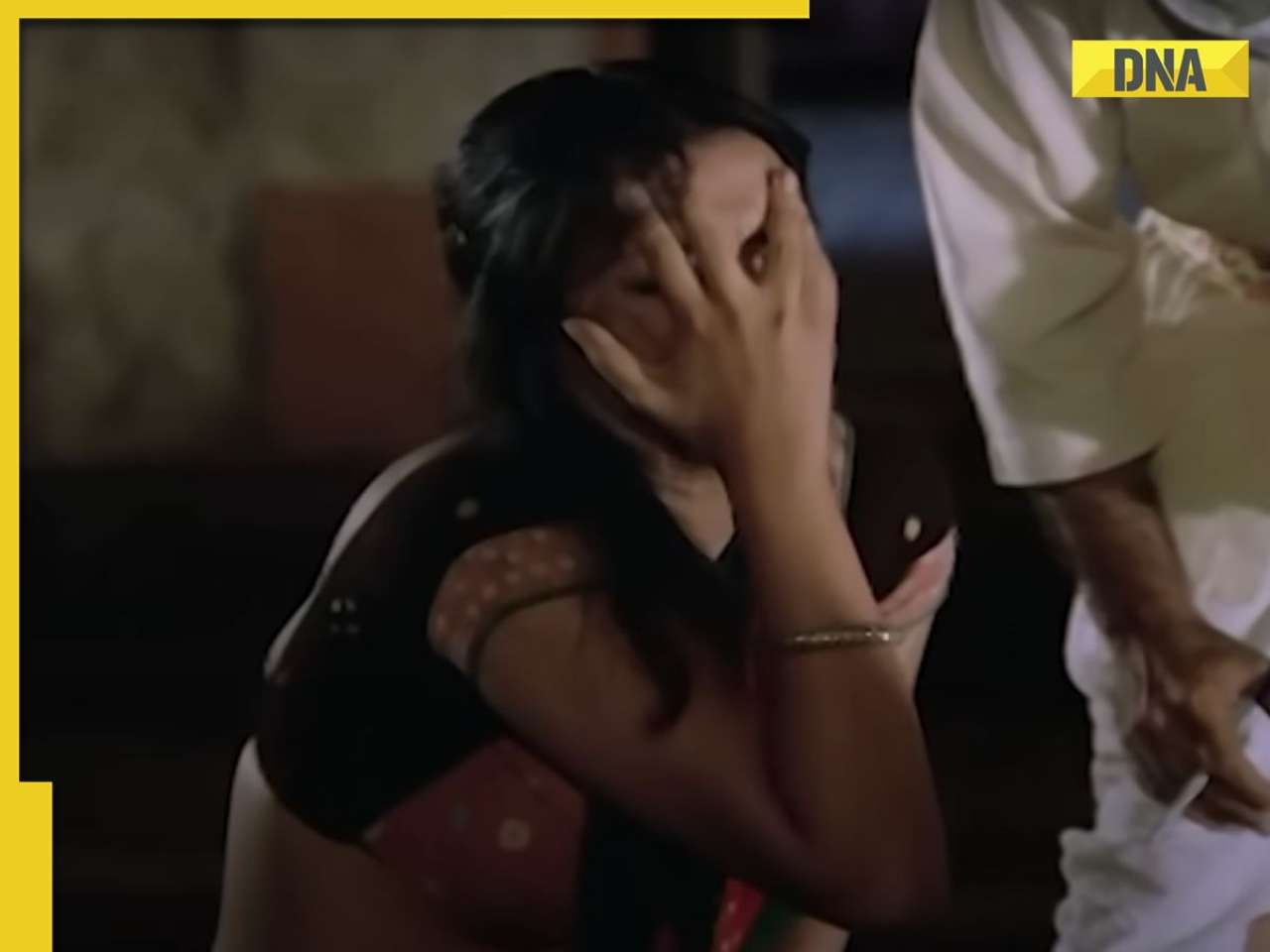


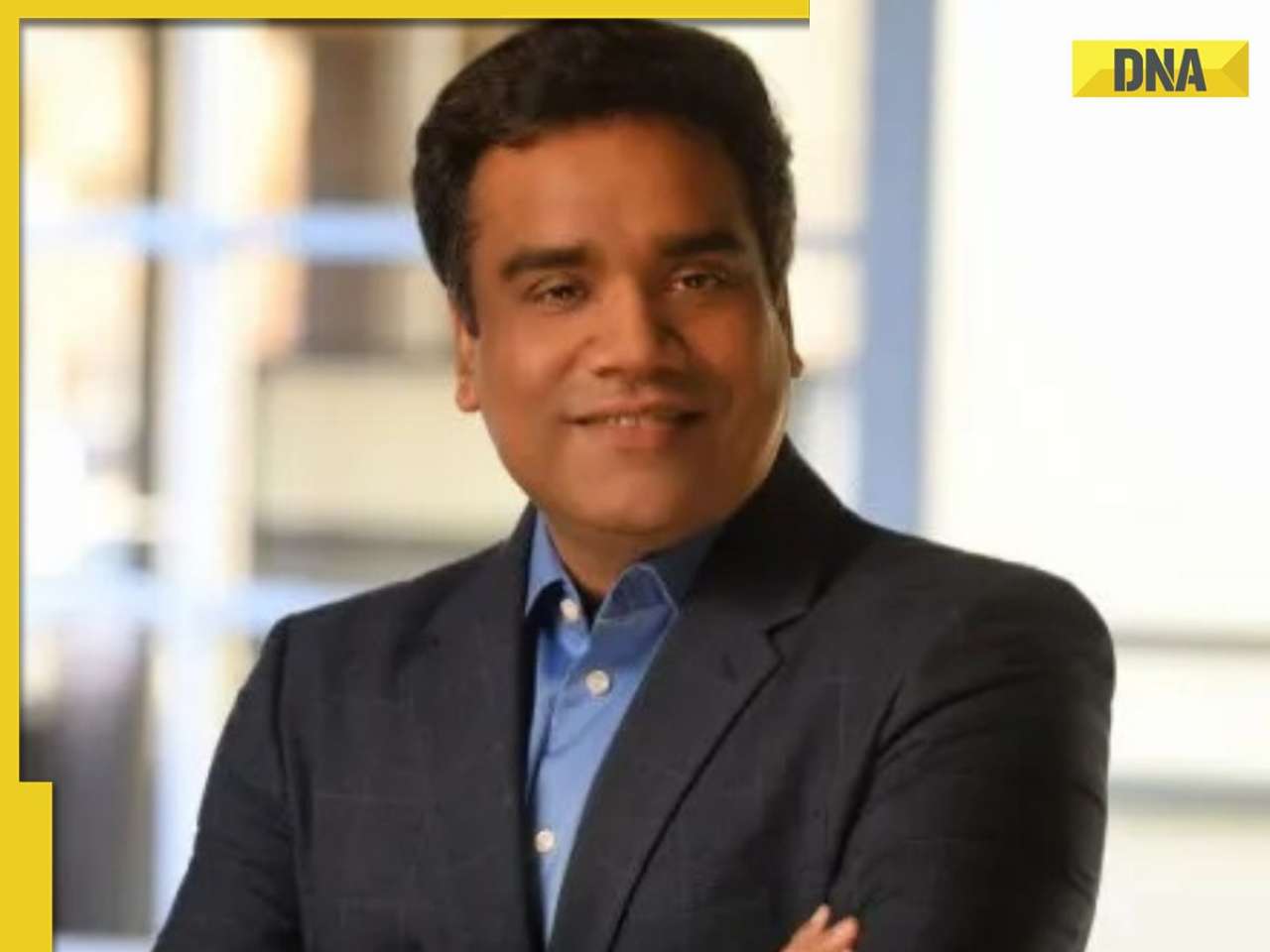




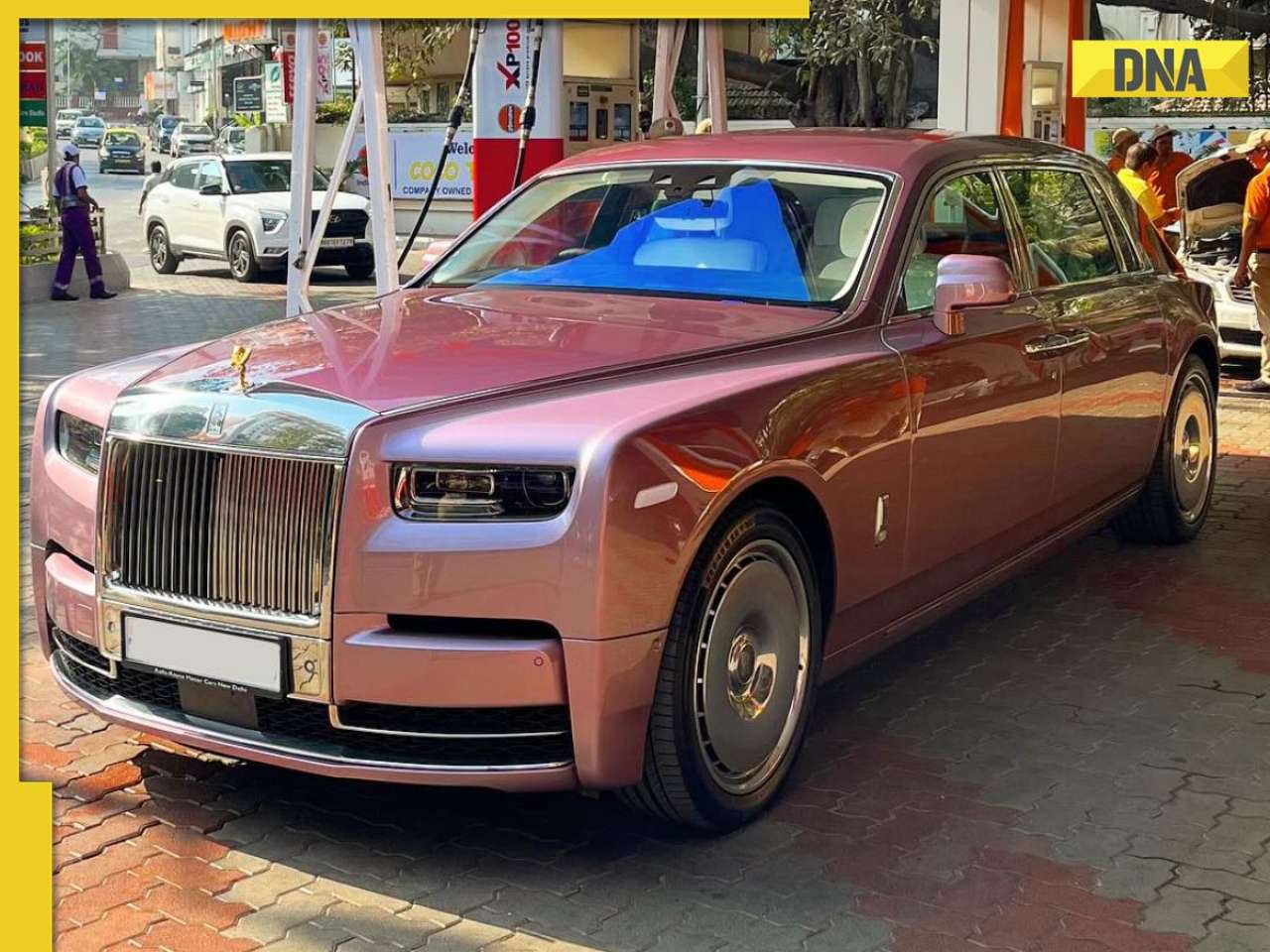

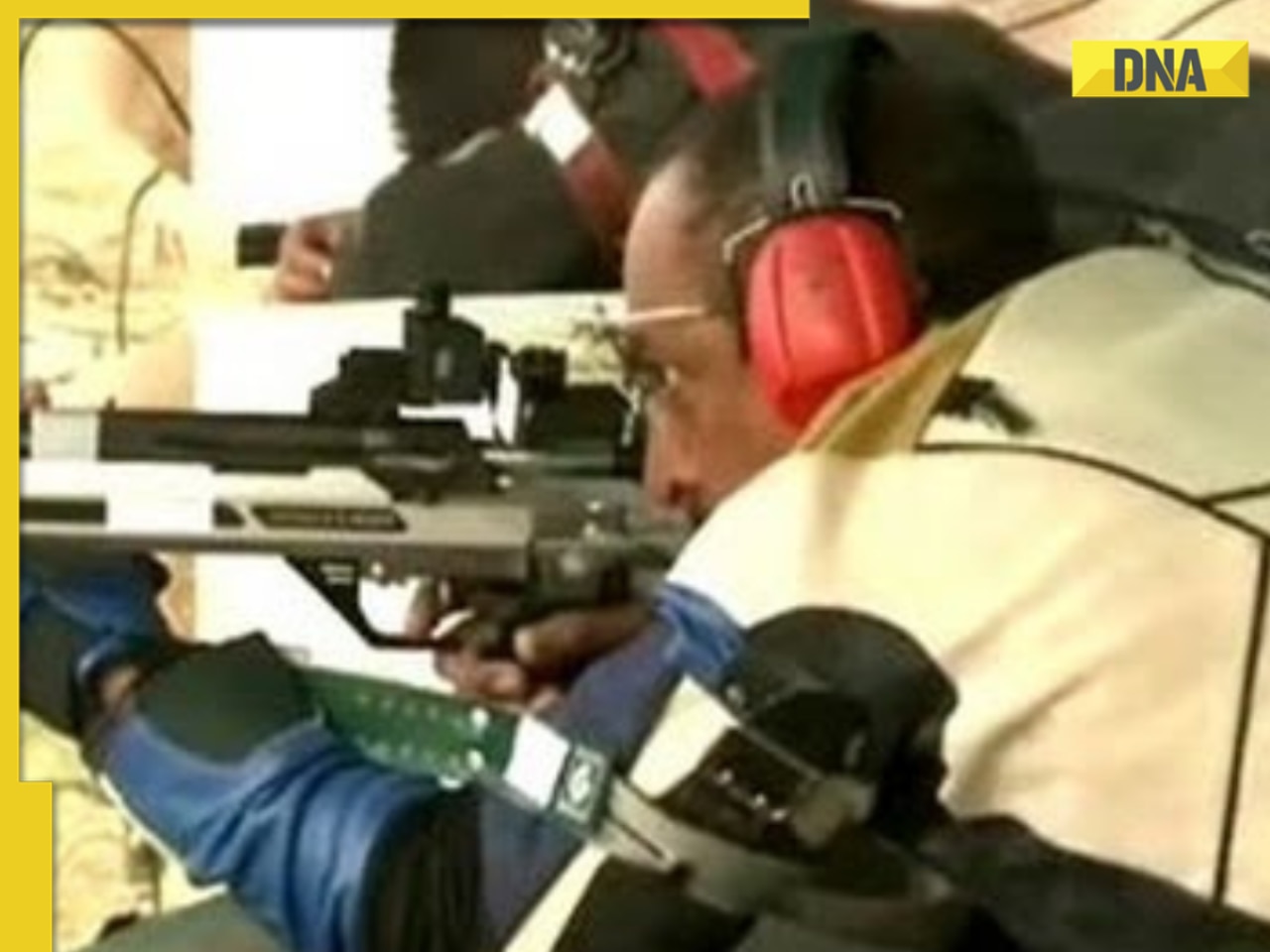




)
)
)
)
)
)